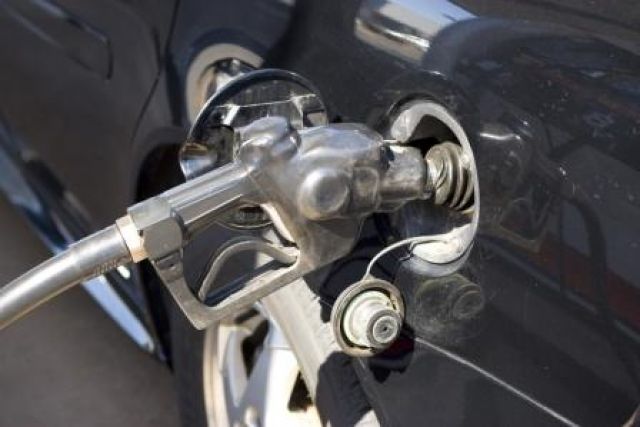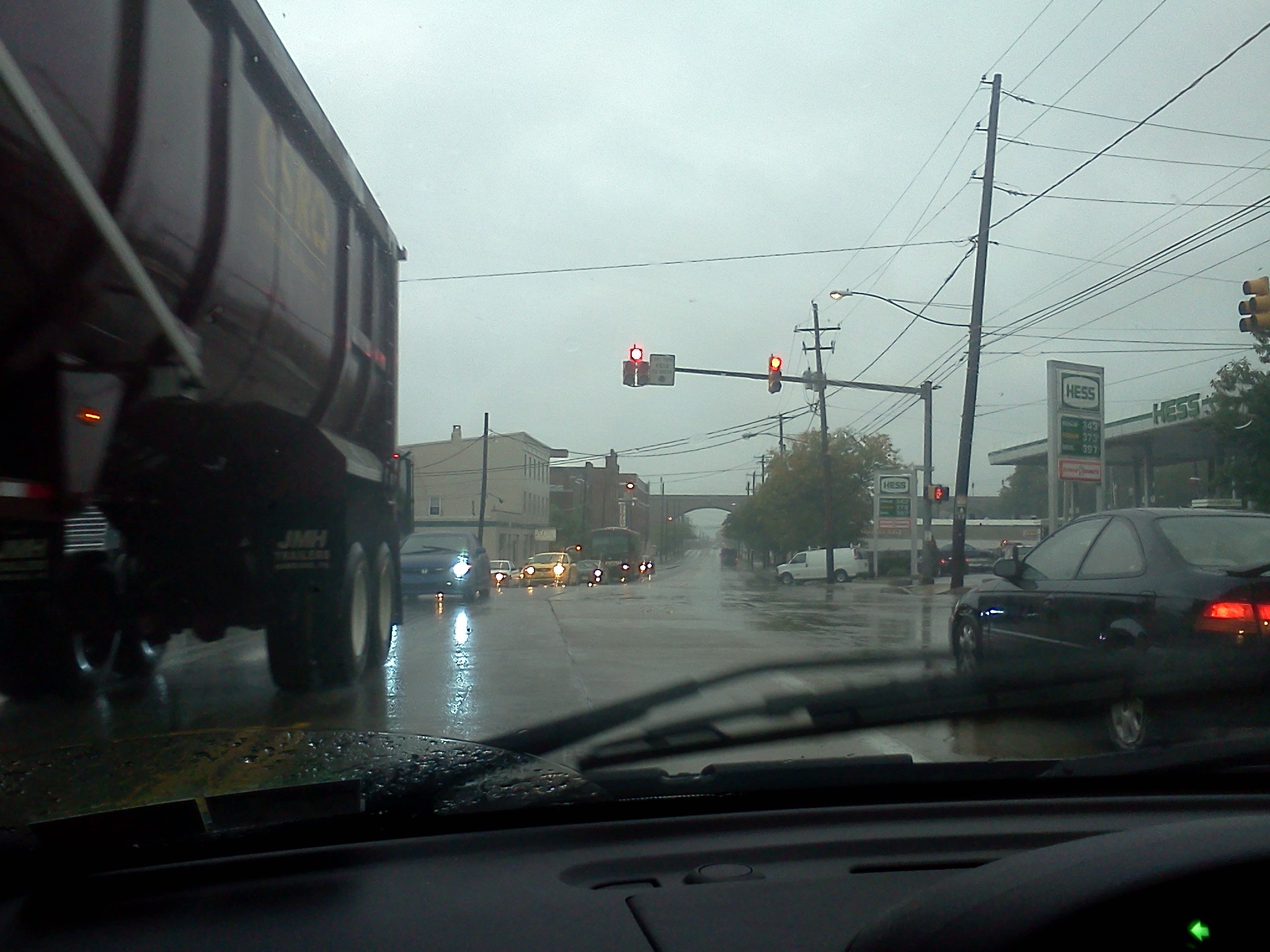Posts
Sticker Shock at the Pump
/in News /by PAMattersDrivers are taking another hit in the wallet with a jump in gas prices this month.
Nationally, gas prices are up 12 cents in just a week. AAA blames the sticker shock on higher crude prices- which have risen 17 percent in four weeks. In Pennsylvania, the average price of gas has risen 15 cents a gallon since a month ago.
Jenny Robinson of AAA Mid Atlantic says global events like the unrest in Egypt and some production disruptions in Libya, Iraq and Nigeria are factors, but there are issues at home as well. She says there are a number of refineries that are undergoing maintenance and repairs. At the same time, we’re in the middle of peak summer vacation season, boosting demand.
Robinson says experts believe prices could creep up at least a few more cents before the end of summer. Any hurricanes could add to the pump price.
Long Hot Summer at the Gas Pump Just About Over
/in News /by PAMattersAfter two months of rising gas prices, we should soon be getting a break. The nation saw the largest gas price increase for the month of August in seven years following on the heels of July’s rising prices at the pump according to AAA. Prices rose nationally more than 30 cents a gallon. The rise was 21 cents a gallon in Pennsylvania.
Jenny Robinson of AAA Mid Atlantic says prices rose 4 cents a gallon during the past week, but held steady over the Labor Day weekend. She says they are hoping that prices will begin to drop as we head into September.
Several factors are now at play; summer driving demand is dwindling, Gulf Coast refineries are reopening following Hurricane Isaac, and refineries are beginning to switch to less expensive winter blends.
Refineries in the Gulf were shut down as a precaution and did not see any significant damage from the storm.
Last September, gas prices dropped by about five percent.
Automakers Respond to Natural Gas Boom
/in News /by PAMattersPennsylvania was among the first states to sign a memorandum of understanding, which indicates their intent to start converting fleet vehicles to natural gas. Only a matter of months after the agreement was first announced, Chrysler and GM are unveiling plans to produce natural gas-powered pickup trucks. “We are going to try to convert our fleets – light duty trucks – over to natural gas, to give Detroit some impetus to do this,” Governor Tom Corbett said on Radio PA’s Ask the Governor program. “I can’t say directly that’s what Chrysler looked at, but I think it certainly had an influence.”
Corbett believes the natural gas boom is changing everything, and as a result the natural gas infrastructure will develop fairly quickly.
House Republican Whip Stan Saylor (R-York) is adding legislative muscle to the conversation by introducing a bill that would incent companies to convert their commercial fleets to natural gas. “By incentivizing these vehicles we will use natural gas, which will spur construction of the statewide refueling network that is needed to create and spread the use of natural gas vehicles here in Pennsylvania,” Saylor said at a capitol news conference.
The network of refueling stations would then make it practical for consumers to drive natural gas cars. Saylor believes it would both lower transportation costs and further expand Pennsylvania’s natural gas industry.
Saylor’s bill would tap the state’s Clean Air Fund for $6-million dollars a year, over the next five years, to provide grants that help cover the costs of converting large trucks to natural gas. “This is a perfect example of why that fund was created,” Saylor says, noting that natural gas vehicles reduce carbon emissions by 90%.
Saylor says the natural gas equivalent of a gallon of gas only costs about $2-dollars, compared to gasoline prices which are approaching the $4-dollar mark.
Gas Prices Are Falling In Pennsylvania and Around the Country
/in News /by PAMattersGasoline prices are falling nationwide and some analysts think prices could still go lower. You can thank the change in seasons, with the change over to the less expensive fall/winter fuel blend. But that’s not the only reason prices at the pump dropped again over the weekend in Pennsylvania.
Jenny Robinson of AAA Mid-Atlantic says after Labor Day, summer travel demand dropped. Meanwhile, crude oil fell to under 80 dollars a barrel. Demand is running about 2% behind last year, according to most analysts. The bleak economic outlook noted by the Federal Reserve and fears around the world for a global economic recession are additional factors in the prices. Gasoline inventories are also up.
Robinson says the Pennsylvania gas average is now at $3.54 a gallon. It dropped about a nickel last week, then another four cents over the weekend. She says it could continue to improve as we go through the fall, possibly coming down another 10 to 20 cents or more. While the prices are higher than last year, they’re lower than they were in the spring and summer.
Robinson says we could see prices start to go back up heading into the winter, depending on how supplies change due to the weather and other factors. It’s not clear how long lived the decrease will be.
Robinson says AAA’s Fuel Finder can help you find the lowest prices in your area.
Libya Impacts the Crude Oil Market
/in News /by PAMattersHow will Moammar Gadhafi’s potential ouster impact your wallet? “Libya is one of the top 20 oil producers and exporters in the world,” explains AAA Mid-Atlantic’s Jana Tidwell. “Since the civil war began, Libya has cut off all exports of crude oil. That’s about 1.6-million barrels of crude oil a day that have not made it to market.”
Many experts predict that Libya could resume exports soon, thus bringing down the price of crude oil, and easing the pain at the pump. “In theory that’s correct,” Tidwell says, “But we also see some unrest in Syria right now.” So, there’s a potential for a catch-22 on the global oil market.
Oil prices are mixed as of mid-Monday, but Tidwell says it’s too soon to predict the short or long-term impact on the price we pay for gasoline. “If we see crude oil hold in the $80-dollar a barrel range, as we have seen in the last week or so, gas prices should continue to trickle down.”
AAA’s Daily Fuel Gauge Survey pegs the statewide average for regular gasoline at just over $3.56 a gallon. That’s about a nickel better than this time last month, but still 87-cents higher than this time last year, in the Keystone State.
Committee Gives Green Light to Octane Testing Bill
/in News /by PAMattersAlaska, Nebraska and Pennsylvania are the last three states without required tests for octane levels at their gas pumps. “Just recently Maryland who passed the legislation did a study, and they found substantial variations in the testing,” says State Senator Stewart Greenleaf, the prime sponsor of SB 341. Greenleaf’s legislation would require the Department of Agriculture to randomly test for octane levels in gasoline. It has the support of the Pennsylvania AAA Federation.
Executive director of the Pennsylvania AAA Federation Ted Leonard points out that a gallon of regular gas averages about $3.80 in Pennsylvania (as of Tuesday afternoon). “Given that high price of gasoline, consumers should be assured that they’re getting what they’re paying for,” he tells us. Different engines are built to run on different octane levels, and the problem is that you may be paying for 93-octane, but receiving 87. While the 87 may cost $3.80, Leonard says premium gasoline is averaging $4.06 in the Keystone State. While Leonard does not believe discrepancies are widespread, he points out that motorists could take a double hit: “You’re not getting what you pay for and secondly damaged engines and fuel gauges… can be expensive repairs.”
The state Department of Agriculture currently tests gas pumps to ensure that you’re getting the gallon you paid for. We’re not assured of the composition of that gallon of gas. Sen. Greenleaf says SB 341 with give the Department of Ag the authority to implement and enforce the law. He believes random testing will control costs while providing piece of mind. The bill was unanimously voted out of the Consumer Protection and Professional Licensure Committee last week. Up next is the Senate floor.
Welcome to PAMatters.com, a new source for news and commentary from Pennsylvania’s capital. In addition to video, audio and pictures from the stories and events that affect YOU, you’ll also get some behind-the-scenes analysis via blogs from our award-winning staff of journalists.




